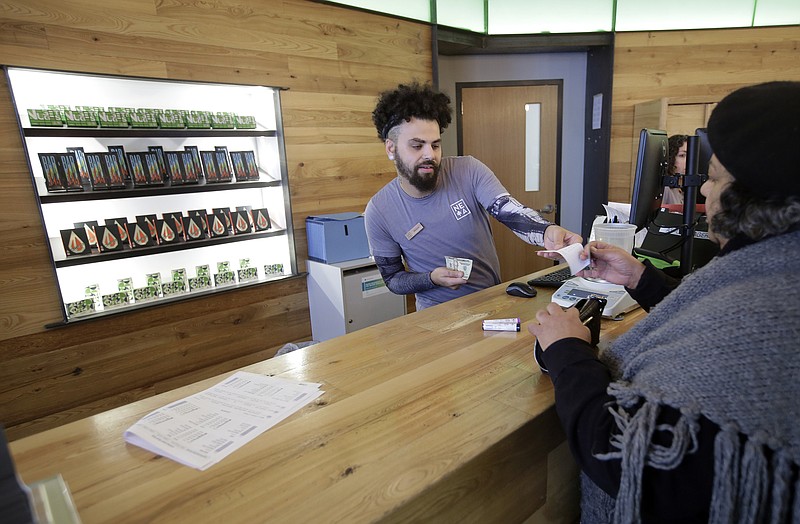Two area state legislators are hoping they've got the right blend this year for medical marijuana legislation.
State Sen. Janice Bowling, R-Tullahoma, and state Rep. Ron Travis, R-Dayton, will introduce legislation in the next few weeks they say is "substantially different" from bills introduced in prior years and which they say will be a mix of medical marijuana strategies that have worked in other states.
We believe carefully crafted legislation that involves products that can be properly regulated could offer relief to patients who have found little or no help elsewhere.
The Bowling-Travis bill is likely to be one of several involving medical marijuana introduced this session, and the prospect of new legislation and a raft of new legislators could make the difference in one of the bills passing.
Last year, a different bill sponsored in the Senate by physician Sen. Steve Dickerson, R-Nashville, and in the House by Rep. Jeremy Faison, R-Cosby, passed the House Criminal Justice Committee 9-2 despite opposition from the Haslam administration, law enforcement and prosecutors. But it was scuttled because it wasn't going to get enough votes in the House Judiciary Committee.
To date, no medical marijuana bill has made it to the floor of the Tennessee state House or Senate.
Further, Gov.-elect Bill Lee has made his opposition to marijuana legalization or decriminalization clear, but medical marijuana could be a different story.
Nevertheless, 33 states now have made marijuana legal in some form, with Michigan (recreational use) and conservative Missouri and Utah (both medicinal use) approving it on ballot initiatives in November.
Since Tennessee has no legal mechanism for such an initiative, approval will have to come by legislators.
The Bowling-Travis bill would create a new government commission to regulate the marijuana industry. Patients who have been diagnosed with specific illnesses would be required to obtain medical cards allowing them to legally purchase the medical marijuana products from dispensaries that would be licensed by the state.
The specific language of the bill has not been released, and the list of illnesses under which a patient could qualify for medical marijuana also has not been delineated. But it already has the backing of the Tennessee Medical Cannabis Trade Association.
As the newest states to adopt some type of marijuana use are learning, though, there are many aspects to consider between passing a bill and patients finding relief.
In Michigan, recreational use or marijuana now is allowed, but there is no place for users to purchase it (though someone can give it to you if you purchase food or other merchandise). In Missouri, questions have risen as to whether patients with a qualifying card for medical marijuana can legally apply for some state government jobs, and they definitely cannot - per federal law - possess a firearm. In Utah, where legislators immediately adapted the ballot measure voters passed, critics say the adjusted medical marijuana program will become too wrapped in red tape and keeps too many patients from receiving treatment.
Last year, Tennessee state Senate leader Randy McNally of Oak Ridge said after the Dickerson-Faison bill collapsed that the issue should be addressed at the federal level. Well, he's right, it should be, but if Washington, D.C., lawmakers can't agree on how 0.0998 percent of the federal budget (a border wall) might be spent, what possible chance do they have of coming to an agreement on medical marijuana?
No, this needs to be a state issue, and it needs to be hashed out sooner rather than later. The possibility that children with seizure disorders, adults with Crohn's disease and seniors with Alzheimer's disease, among many other illnesses and disorders, might find relief is compelling.
The key, we believe, is thorough regulation, checks at every level of the process and annual reviews. We don't believe this has to be a step toward legalization or decriminalization - though simple possession laws probably need to be changed - but an acknowledgement that medical marijuana can be, as Bowling described it, a "natural and effective option for pain relief."
Studies also have shown that, in some cases, its use might prevent some individuals from becoming another statistic in the nation's growing scourge of opioid abuse.
If nothing else, we hope the Bowling-Travis bill, and others introduced, will receive a full hearing from legislators. The issue deserves information, consideration and cooperation in order to create legislation that could be helpful to so many.
